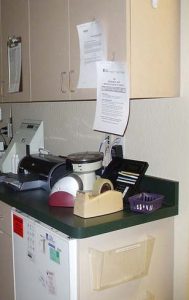Ron Hines DVM PhD
Glutamate Dehydrogenase Blood Levels = GDH / GLDH
Glutamate dehydrogenase is an enzyme that helps metabolize glutamate, one of the amino acids absorbed from food or synthesized in your dog or cat’s body. Its blood level is an indication of liver function. GDH levels tend to only rise when serious damage (necrosis) has affected the hepatocytes that make up your pet’s liver.
As such, elevated GDH levels are a more sensitive indicator of liver damage than your pet’s AST or AP which can both go up in a number of less life-threatening liver problems or arise from non-liver sources, or in relation to increased blood bilirubin levels.
Reasons Why Your Pet’s GDH / GLDH Levels Might Be High:
Liver cell destruction (hepatocellular necrosis), ingestion of toxic products, tainted foods or medications (such as giving Tylenol™ to cats, medications at too high a dose or a unique reaction to a medication that your veterinarian could not have predicted), lack of liver blood supply (hepatic hypoxia), congestive heart failure and bile duct obstruction can all cause elevated GDH levels in your pet. Trazodone, given to dogs for separation anxiety has also been associated with liver damage. (read here)
Complementary Tests:
ALT, AST, bile acids
DxMe
